
Oliwa: The Tranquil Heart of Gdansk
Oliwa, a serene and picturesque neighborhood in Gdansk, Poland, offers a unique blend of history, nature, and culture. Known for its lush greenery and historic landmarks, Oliwa is the perfect destination for tourists looking to escape the hustle and bustle of the city center and immerse themselves in a more tranquil setting. One of the highlights of Oliwa is the Oliwa Park, a beautifully landscaped garden featuring a variety of plants, fountains, and charming walking paths. The park is also home to the Oliwa Cathedral, a stunning Gothic structure famous for its impressive organ concerts. Visitors can explore the cathedral's intricate interiors and enjoy the peaceful atmosphere of the surrounding park. Oliwa is also home to a number of museums, including the Gdansk Zoo and the Museum of Modern Art. These attractions offer a glimpse into the rich cultural heritage of the area and provide a fun and educational experience for visitors of all ages. Additionally, the neighborhood boasts a variety of cafes and restaurants, where tourists can enjoy traditional Polish cuisine and relax after a day of sightseeing. Whether you're interested in history, nature, or simply looking for a quiet place to unwind, Oliwa has something to offer everyone. Its charming streets, beautiful parks, and cultural attractions make it a must-visit destination for anyone traveling to Gdansk.
Local tips in Oliwa
- Visit the Oliwa Cathedral during an organ concert for a truly unique experience.
- Take a leisurely stroll through Oliwa Park to enjoy its beautiful gardens and peaceful atmosphere.
- Check out the Gdansk Zoo for a family-friendly activity that's both fun and educational.
- Try traditional Polish cuisine at one of the local cafes or restaurants in Oliwa.
- Explore the Museum of Modern Art to get a taste of the local art scene.
Oliwa: The Tranquil Heart of Gdansk
Oliwa, a serene and picturesque neighborhood in Gdansk, Poland, offers a unique blend of history, nature, and culture. Known for its lush greenery and historic landmarks, Oliwa is the perfect destination for tourists looking to escape the hustle and bustle of the city center and immerse themselves in a more tranquil setting. One of the highlights of Oliwa is the Oliwa Park, a beautifully landscaped garden featuring a variety of plants, fountains, and charming walking paths. The park is also home to the Oliwa Cathedral, a stunning Gothic structure famous for its impressive organ concerts. Visitors can explore the cathedral's intricate interiors and enjoy the peaceful atmosphere of the surrounding park. Oliwa is also home to a number of museums, including the Gdansk Zoo and the Museum of Modern Art. These attractions offer a glimpse into the rich cultural heritage of the area and provide a fun and educational experience for visitors of all ages. Additionally, the neighborhood boasts a variety of cafes and restaurants, where tourists can enjoy traditional Polish cuisine and relax after a day of sightseeing. Whether you're interested in history, nature, or simply looking for a quiet place to unwind, Oliwa has something to offer everyone. Its charming streets, beautiful parks, and cultural attractions make it a must-visit destination for anyone traveling to Gdansk.
Iconic landmarks you can’t miss
Oliwski Park
Discover the enchanting beauty of Oliwski Park in Gdańsk, a lush green oasis perfect for relaxation, exploration, and cultural experiences.
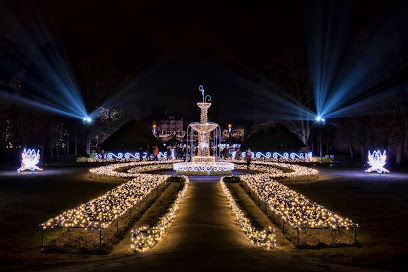
Katedra Oliwska
Discover the architectural beauty and serene atmosphere of Katedra Oliwska, a historic gem nestled in Gdańsk's Oliwa district.

monumental water forge of Oliwa
Explore the Monumental Water Forge of Oliwa in Gdańsk, a unique technology museum showcasing the history of water-powered machinery and industrial innovation.
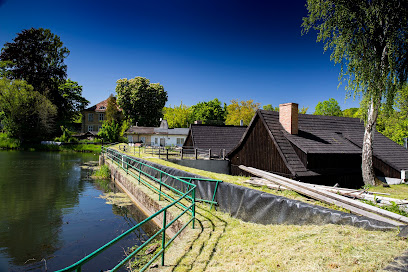
Kamienna Twarz
Discover the captivating Kamienna Twarz in Gdańsk's Oliwa district, a unique stone sculpture surrounded by natural beauty and rich history.
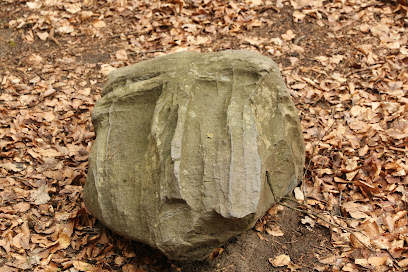
Monument to the Battle of Oliwa in 1627
Explore the Monument to the Battle of Oliwa in Gdańsk, a serene tribute to Poland's naval history amidst stunning natural landscapes.
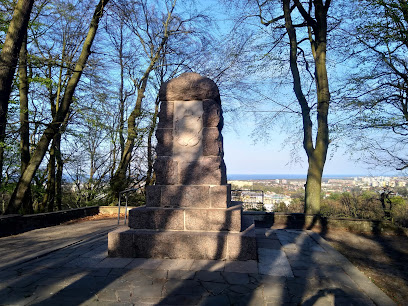
Zabytkowa grota widokowa
Explore the Historic Viewpoint Cave in Gdańsk – a hidden gem blending history with stunning natural vistas.
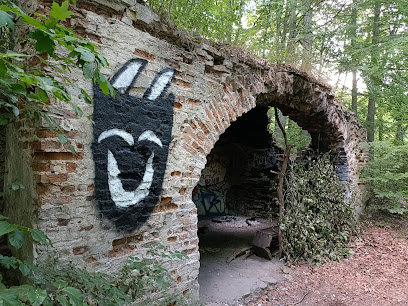
Dom Polski
Explore the stunning heritage of Dom Polski in Gdańsk, a historic site that showcases Poland's rich cultural history and architectural beauty.
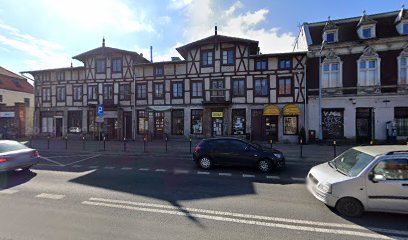
Dawny dom m. in. Wandtków i Glonków
Explore the architectural beauty and rich history of Dawny dom m. in. Wandtków i Glonków in Gdańsk's charming Oliwa district.
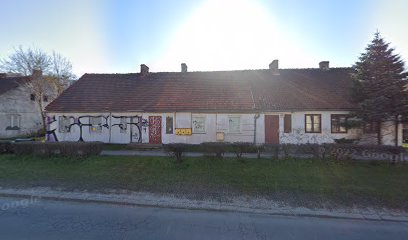
Historical location of the tram stub terminus Oliva Schloss 1901-1948
Experience the charm and history of the Historical Tram Stub Terminus in Gdańsk's Oliwa district, a landmark of early 20th-century transportation.
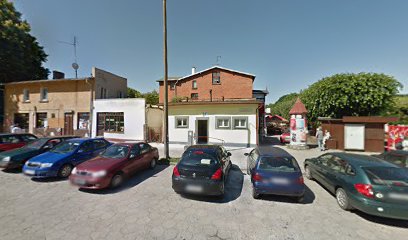
Historical location of Elisium
Explore the historical landmark of Elisium in Gdańsk's Oliwa district, where rich culture meets stunning architecture amid serene gardens.
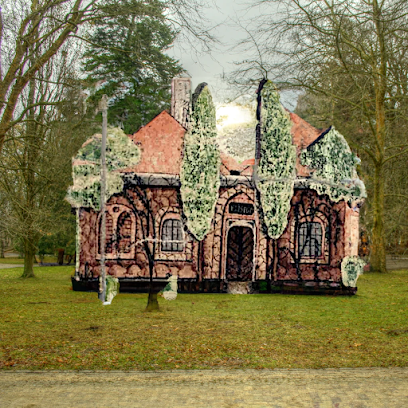
Unmissable attractions to see
Zoo Gdańsk Oliwa
Discover over 200 animal species in a beautifully landscaped setting at Zoo Gdańsk Oliwa, a must-visit attraction for families and wildlife lovers in Gdańsk.
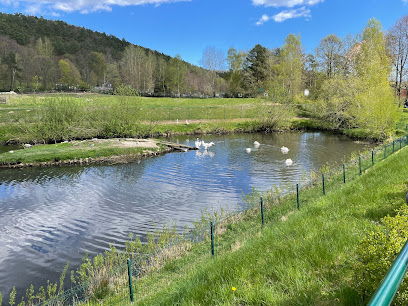
Palm house
Explore the lush greenery and exotic plants of the Palm House in Gdańsk, a serene oasis perfect for nature lovers and families alike.
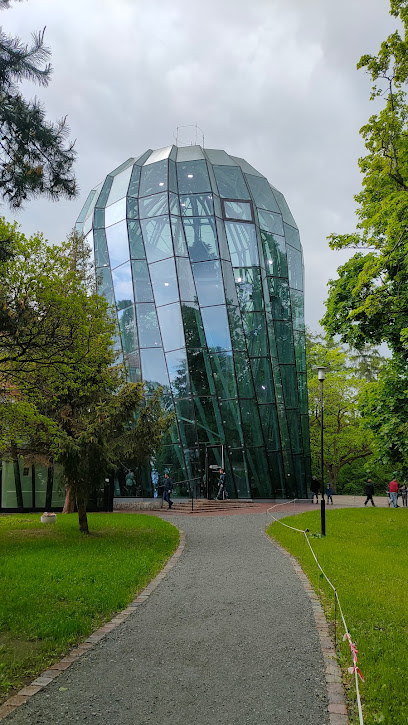
Whisper Grottoes
Discover the serene beauty of Whisper Grottoes in Gdańsk's Oliwa district, a must-visit natural attraction for all travelers.
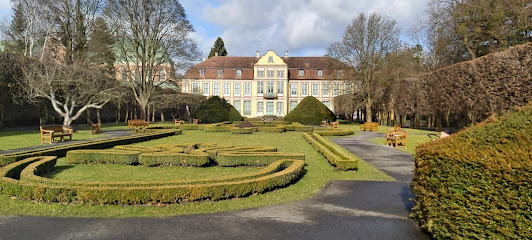
Dolina Elfów
Discover the enchanting beauty of Dolina Elfów in Gdańsk, a tranquil woodland perfect for nature lovers and adventure seekers alike.
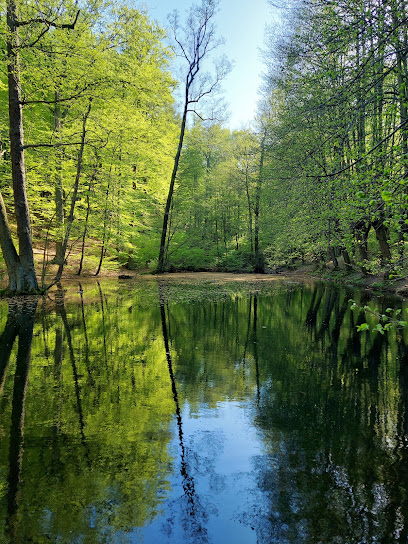
monumental water forge of Oliwa
Explore the Monumental Water Forge of Oliwa, a unique museum showcasing the fascinating world of water-driven machinery and Gdańsk's industrial heritage.
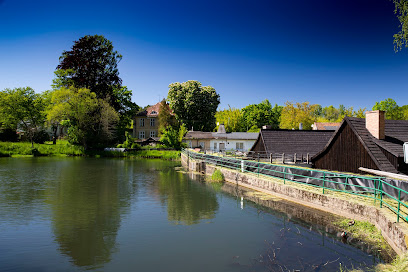
Park Oliwski Ogród Japoński
Experience serenity in Gdańsk's Park Oliwski Ogród Japoński, a harmonious blend of nature and Japanese culture.
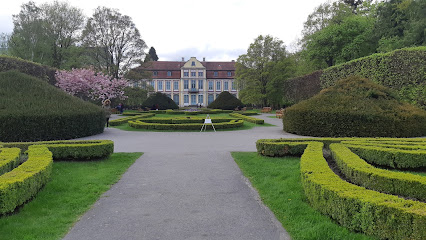
Wzgórze Marii
Discover the tranquil beauty and historical charm of Wzgórze Marii in Gdańsk, a perfect retreat for nature lovers and history enthusiasts.
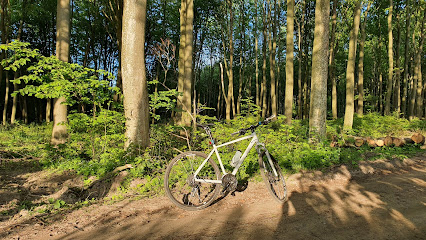
Samotny Głaz,
Explore the serene beauty of Samotny Głaz in Gdańsk, a stunning natural attraction perfect for relaxation and breathtaking photography.
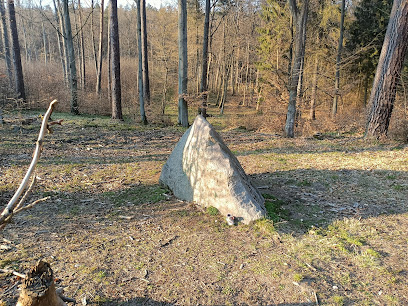
Kamień przy Szwedzkiej Grobli
Explore the serene beauty of Kamień przy Szwedzkiej Grobli in Gdańsk, a tranquil retreat perfect for nature lovers and peace seekers.
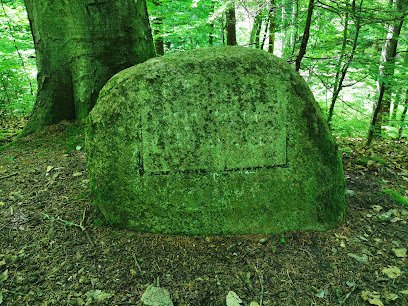
Essential places to dine
Pierogarnia Mandu Gdańsk Oliwa
Discover authentic Polish dumplings at Pierogarnia Mandu Gdańsk Oliwa - where tradition meets taste in every bite.
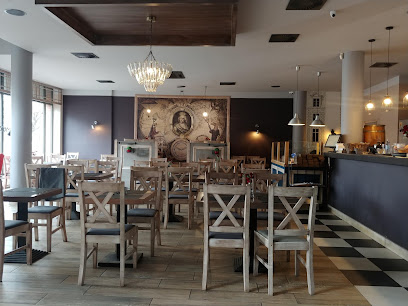
Classic
Discover Classic Restaurant in Gdańsk: where authentic American flavors meet Polish hospitality in a cozy setting.
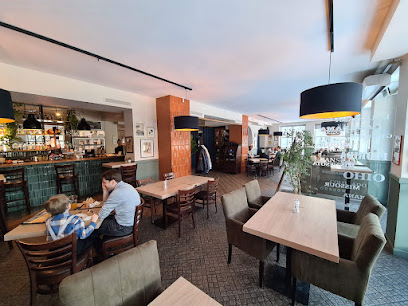
Tu Można Marzyć
Discover the culinary delights of Gdańsk at Tu Można Marzyć - where tradition meets modern gastronomy in an enchanting setting.
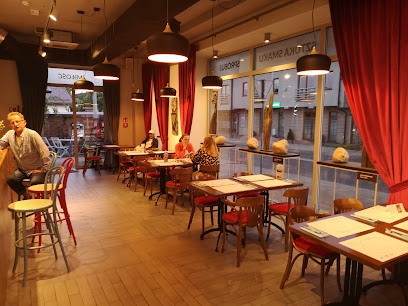
Ryż
Savor the vibrant tastes of Thailand at Ryż - Gdańsk's go-to spot for authentic Thai cuisine amidst a charming atmosphere.
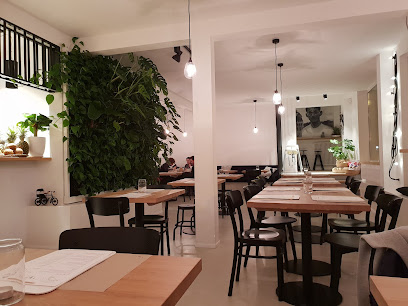
Ristorante Con Giardino
Discover authentic Italian flavors at Ristorante Con Giardino in Gdańsk - where culinary artistry meets a charming garden ambiance.
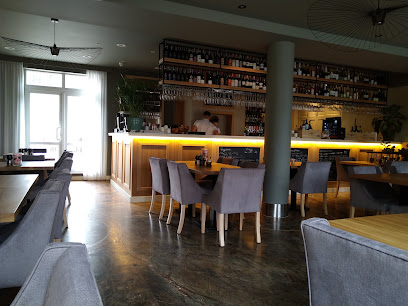
Fischgarten
Experience authentic Polish cuisine at Fischgarten in Gdańsk - where tradition meets taste in every dish.
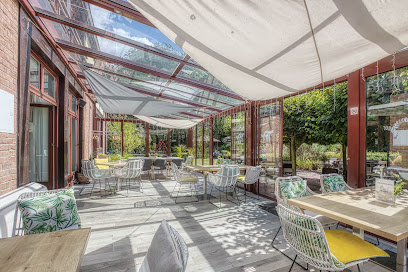
Bistro Żeberko
Discover authentic Polish cuisine at Bistro Żeberko in Gdańsk's charming Oliwa district - where tradition meets flavor.
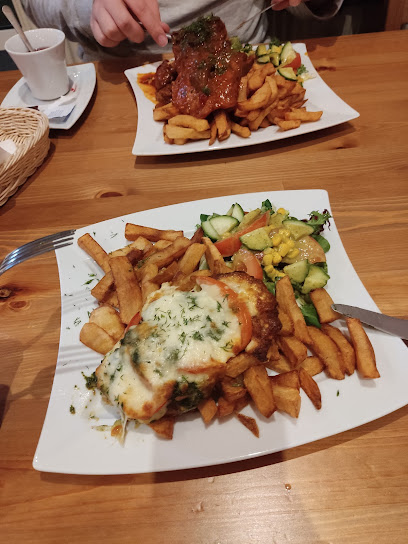
Treinta y Tres
Experience exquisite flavors at Treinta y Tres in Gdańsk – where local ingredients meet international cuisine in a cozy setting.
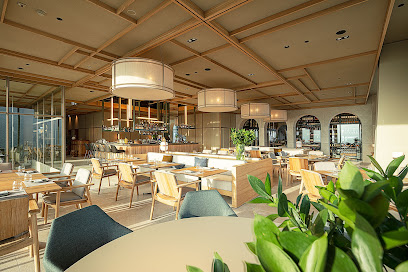
LOBSTER
Experience exquisite Mediterranean flavors at Lobster in Gdańsk - where fresh seafood meets culinary artistry.
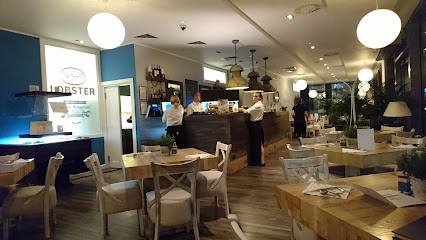
Nie/Mięsny Oliwa
Experience authentic Middle Eastern cuisine at Nie/Mięsny Oliwa in Gdańsk - a culinary journey filled with flavor and tradition.
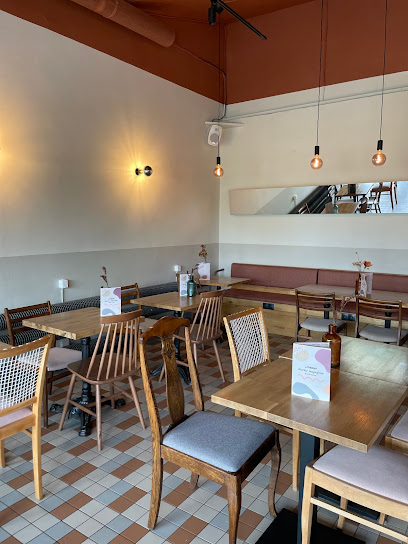
Markets, malls and hidden boutiques
Oliwa Shopping Center
Explore the vibrant Oliwa Shopping Center in Gdańsk, where shopping, dining, and entertainment come together in a lively atmosphere.
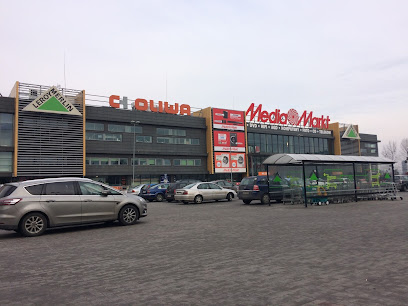
Stary Rynek Bakery & Cafe
Experience the charm of Gdańsk at Stary Rynek Bakery & Cafe, where fresh pastries and rich coffee create a delightful atmosphere.
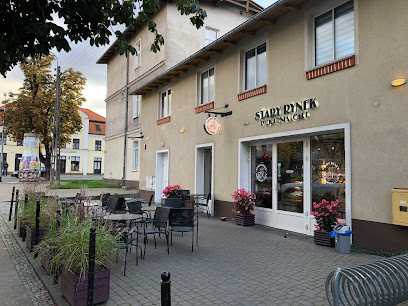
Familia. Shopping center
Explore the vibrant Familia Shopping Center in Gdańsk, where shopping, dining, and entertainment come together for an unforgettable experience.
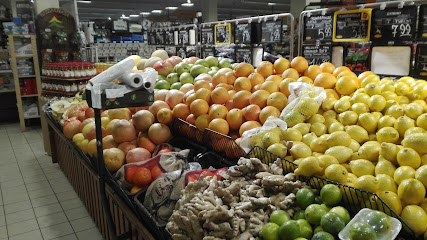
Pchli Targ W Oliwie
Discover unique antiques, handmade crafts, and local delicacies at Pchli Targ W Oliwie, Gdańsk's vibrant flea market offering a cultural shopping experience.
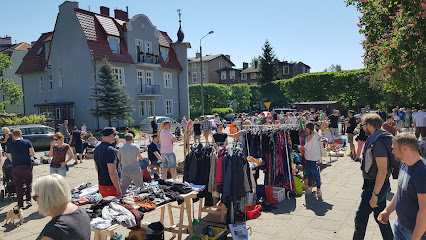
Divagnes Piercing&Tooth Gems
Discover the vibrant world of body art at Divagnes Piercing & Tooth Gems in Gdańsk, where every piece tells a story of personal expression.
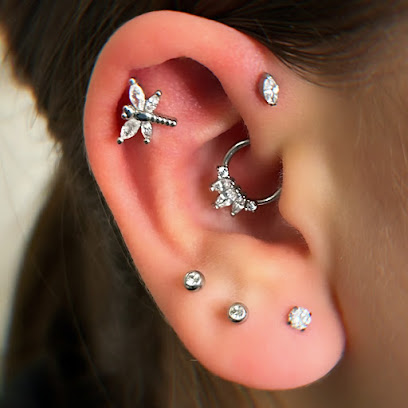
Olivianka
Experience the charm of Olivianka in Gdańsk, where delicious coffee, delightful pastries, and a family-friendly atmosphere await.
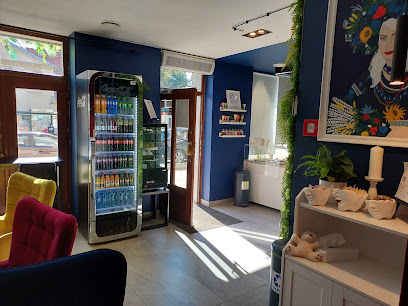
Producent żywności specjalnego przeznaczenia medycznego oraz suplementów diety - Młyn Oliwski - Bene Vobis®
Explore Młyn Oliwski in Gdańsk for premium health foods and supplements, promoting wellness and vitality in your travel journey.
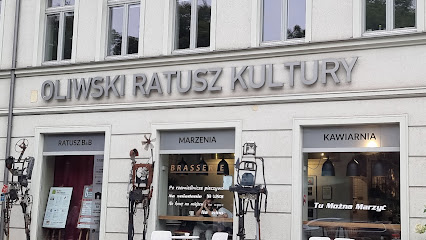
Inaczej niż w Raju
Explore the charm of Gdańsk at Inaczej niż w Raju, a unique antique store filled with vintage treasures and rich history.
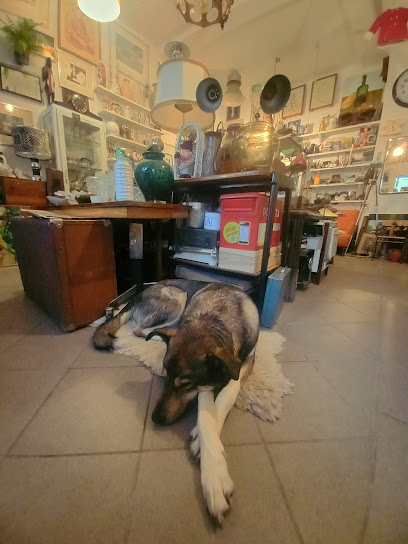
Pari Pari
Explore the charm of Gdańsk at Pari Pari, a clothing store featuring unique Polish fashion and local artisan accessories.
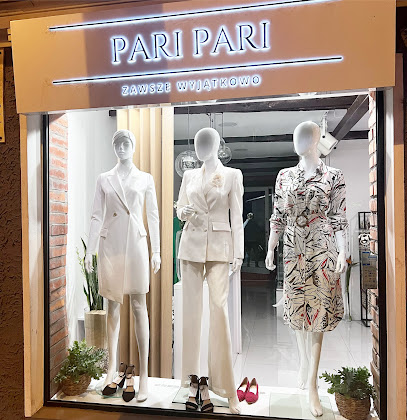
coolawoola
Explore Coolawoola in Gdańsk, where fashion meets style with unique collections for women, men, and children, plus vintage finds!
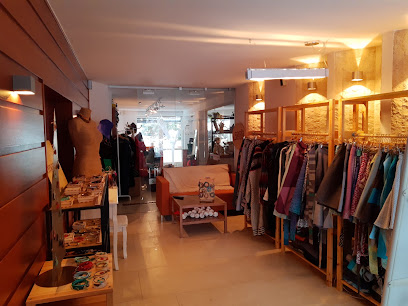
Essential bars & hidden hideouts
Pub Spółdzielnia
Discover the warm and inviting atmosphere of Pub Spółdzielnia in Gdańsk, where great drinks meet local culture at affordable prices.
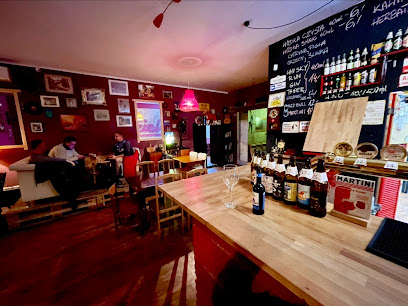
Paszcza Lwa
Discover the lively brewpub Paszcza Lwa in Gdańsk, featuring live music, delicious brews, and a welcoming community atmosphere for all.
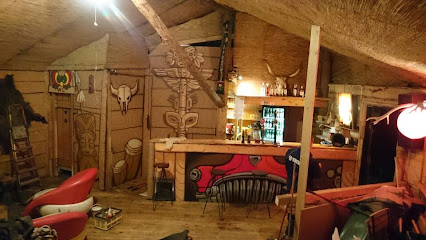
Grill Bar Merc. Bar
Experience the best of grilled cuisine and vibrant atmosphere at Grill Bar Merc. Bar in the heart of Gdańsk's Oliwa district.
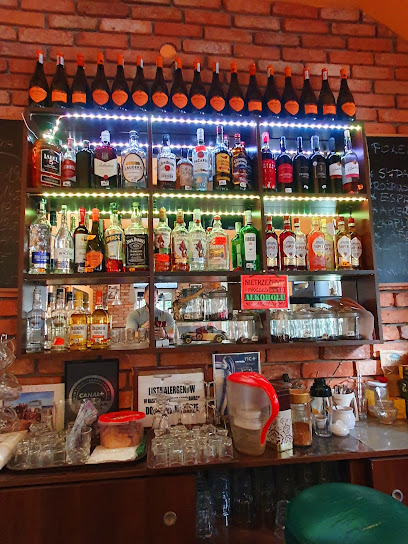
Pro'Rock Pub
Discover the vibrant atmosphere of Pro'Rock Pub in Gdańsk, where music and great drinks come together to create unforgettable nights.
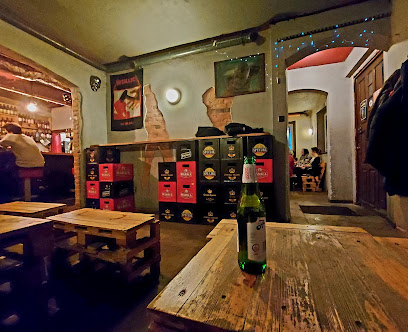
Bar Przy Potoku
Discover the charm of Bar Przy Potoku in Gdańsk, where a cozy atmosphere and a delightful selection of drinks await every visitor.
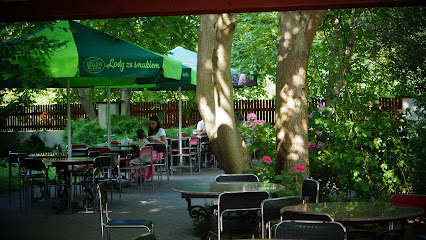
Bar piwny
Experience the vibrant culture of Gdańsk at Bar Piwny, where affordable drinks and a cozy atmosphere await your visit.
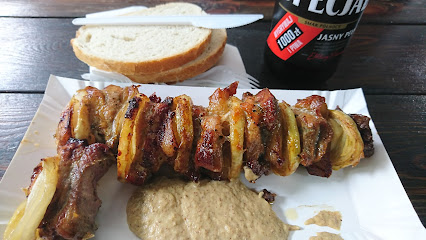
Pub Play Off
Discover the vibrant local brews and hearty meals at Pub Play Off, your go-to pub in Gdańsk's charming Oliwa district.
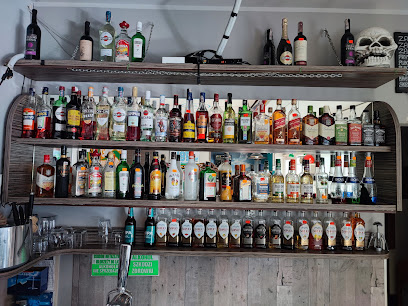
Bar Przystanek Przekąska
Experience the vibrant nightlife of Gdańsk at Bar Przystanek Przekąska, where local flavors meet a cozy atmosphere.
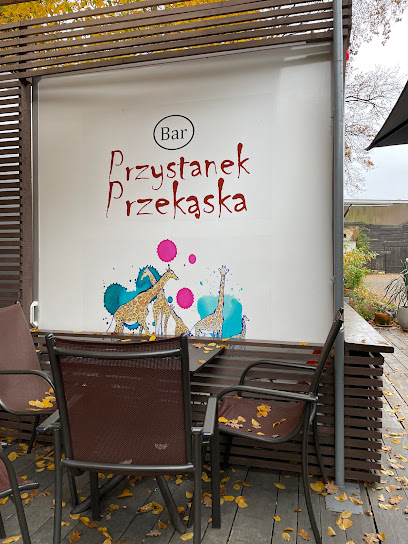
Bar bistro
Discover Gdańsk's vibrant bar bistro scene with a wonderful selection of drinks and a cozy atmosphere perfect for relaxation and socializing.
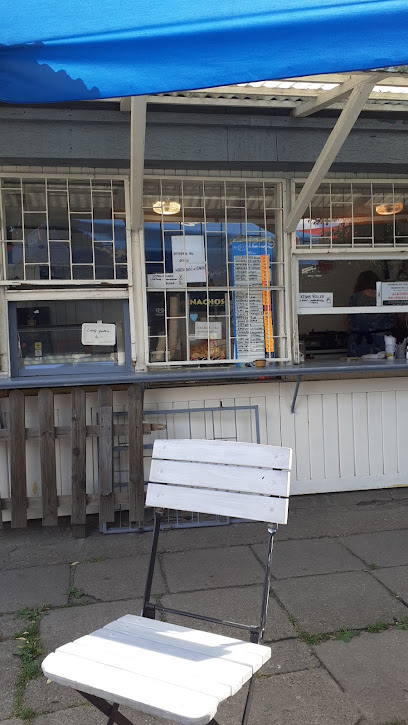
Medium Rare Magdalema Tomczyk
Experience the lively atmosphere and local flavors at Medium Rare Magdalema Tomczyk, a charming pub in the heart of Gdańsk.
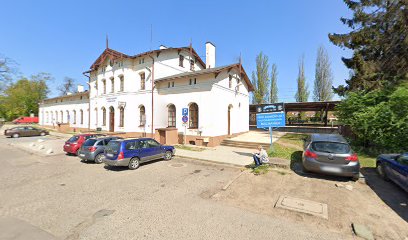
Local Phrases
-
- HelloCześć
[che-shch] - GoodbyeDo widzenia
[do veed-zen-ya] - YesTak
[tahk] - NoNie
[nyeh] - Please/You're welcomeProszę
[pro-sheh] - Thank youDziękuję
[jen-koo-yeh] - Excuse me/SorryPrzepraszam
[pshay-prah-sham] - How are you?Jak się masz?
[yak shchay mahsh] - Fine. And you?Dobrze. A ty?
[doh-bzeh. ah ti] - Do you speak English?Czy mówisz po angielsku?
[chi moo-veesh poh ahng-yehl-skoo] - I don't understandNie rozumiem
[nyeh roh-zoo-myem]
- HelloCześć
-
- I'd like to see the menu, pleaseChciałbym zobaczyć menu, proszę
[h-chiah-bim zoh-bah-chich meh-noo, pro-sheh] - I don't eat meatNie jem mięsa
[nyeh yem myen-sah] - Cheers!Na zdrowie!
[nah zdroh-vee-eh] - I would like to pay, pleaseChciałbym zapłacić, proszę
[h-chiah-bim zah-plah-chich, pro-sheh]
- I'd like to see the menu, pleaseChciałbym zobaczyć menu, proszę
-
- Help!Pomocy!
[poh-mo-tsi] - Go away!Idź sobie!
[eedz soh-bee-eh] - Call the Police!Zadzwoń po policję!
[zahd-zvon po po-leet-syeh] - Call a doctor!Zadzwoń po lekarza!
[zahd-zvon po leh-kahr-zah] - I'm lostZgubiłem się
[zgoo-byem syeh] - I'm illJestem chory
[yeh-stem hoh-ri]
- Help!Pomocy!
-
- I'd like to buy...Chciałbym kupić...
[h-chiah-bim koo-peech] - I'm just lookingTylko się rozglądam
[tzi-ko syeh roh-zglon-dahm] - How much is it?Ile to kosztuje?
[ee-leh toh kohs-too-yeh] - That's too expensiveTo jest za drogie
[toh yest zah droh-gyeh] - Can you lower the price?Czy możesz obniżyć cenę?
[chi moo-zhesh ohb-nee-zhoo-tch chen-eh]
- I'd like to buy...Chciałbym kupić...
-
- What time is it?Która jest godzina?
[ktoo-rah yest goh-dzi-nah] - It's one o'clockJest pierwsza
[yest pyer-vshah] - Half past (10)Pół do dziesiątej
[poow doh dzyeh-shont-ehy] - MorningRano
[rah-noh] - AfternoonPopołudnie
[poh-po-woo-dnyeh] - EveningWieczór
[vyeh-choor] - YesterdayWczoraj
[v-choh-rye] - TodayDzisiaj
[dzyee-sigh] - TomorrowJutro
[yoo-troh] - 1Jeden
[yeh-den] - 2Dwa
[dvah] - 3Trzy
[tshih] - 4Cztery
[ch-teh-ri] - 5Pięć
[pyents] - 6Sześć
[shesh-ch] - 7Siedem
[syeh-dem] - 8Osiem
[oh-syem] - 9Dziewięć
[dzyeh-vyents] - 10Dziesięć
[dzyeh-shonts]
- What time is it?Która jest godzina?
-
- Where's a/the...?Gdzie jest...
[g-jeh yest] - What's the address?Jaki jest adres?
[yah-ki yest ah-dress] - Can you show me (on the map)?Czy pokażesz mi (na mapie)?
[chi poh-kah-zhesh mee (nah mah-pyeh)] - When's the next (bus)?Kiedy jest następny (autobus)?
[kyeh-dy yest nas-tep-neh (ow-toh-boos)] - A ticket (to ....)Bilet (do...)
[bee-let (doh)]
- Where's a/the...?Gdzie jest...
History of Oliwa
-
Oliwa's history dates back to the 12th century when it was established as a settlement by the Cistercian monks. The monks came from France and were instrumental in developing agriculture and trade in the region. They built the Oliwa Monastery, which became a center of spiritual and economic life, significantly influencing the area's growth.
-
The Oliwa Monastery, founded in 1186, is one of the most significant historical sites in the area. The Baroque church, completed in the 18th century, features an impressive organ and beautiful frescoes. The monastery complex includes gardens and is a testament to the Cistercian influence on local architecture and culture, reflecting the monastic lifestyle and its connection to the broader Gdansk region.
-
During the Teutonic Wars in the 14th and 15th centuries, Oliwa played a crucial role as a refuge for those fleeing the conflicts. The monastery provided shelter and support, becoming a symbol of resilience. This period also marked the beginning of Gdansk's rise as a powerful city in the Baltic region, with Oliwa being an integral part of the surrounding landscape.
-
The 19th century brought significant changes to Oliwa, as it transformed from a quiet village into a prominent suburb of Gdansk. With the arrival of the railway in the mid-1800s, Oliwa became more accessible, attracting visitors and residents alike. The area saw the establishment of parks, villas, and cultural institutions, contributing to a vibrant community that blended nature with urban life.
-
Oliwa experienced significant hardships during World War II, including the destruction of its historical sites and displacement of local residents. Post-war reconstruction efforts aimed to restore the neighborhood, but many structures were lost. The rebuilding phase also integrated new architectural styles, reflecting the changing times while preserving the cultural essence of the area.
-
Today, Oliwa is known for its rich cultural scene, highlighted by the annual Oliwa Organ Concerts held in the monastery's church. The neighborhood's parks and natural beauty attract both locals and tourists, maintaining its status as a peaceful enclave within the bustling city of Gdansk. Oliwa's blend of history, culture, and nature continues to make it a unique destination in the region.
Oliwa Essentials
-
Oliwa is easily accessible from other neighborhoods in Gdansk. You can take the SKM (Szybka Kolej Miejska) train from Gdansk City Center (Gdańsk Główny) to Oliwa Station, with a journey time of about 15 minutes. Alternatively, several bus lines connect Oliwa to other parts of Gdansk, including lines 118, 158, and 186. If you prefer cycling, the scenic routes along the coastline offer a pleasant way to reach Oliwa.
-
Oliwa is a compact neighborhood, making it ideal for walking or cycling. The local public transport system is efficient, with buses and trains providing easy access to key attractions. Bicycles can be rented from local shops, and there are several bike paths throughout the area. Taxis and rideshare services are also available for those needing quicker transport.
-
Oliwa is generally safe for tourists, but it is always wise to exercise standard precautions. Avoid poorly lit areas at night and keep an eye on personal belongings in crowded spots. While there are no specific areas of high crime targeting tourists, it is advisable to stay vigilant near bus and train stations.
-
In case of an emergency, dial 112 for police, fire, or medical assistance. The nearest hospital is located in nearby Wrzeszcz. It's recommended to have travel insurance covering medical emergencies. For minor health issues, pharmacies in Oliwa can provide over-the-counter medications.
-
Fashion: Do dress modestly, especially when visiting the Oliwa Cathedral. Don't wear overly casual or beachwear in religious sites. Religion: Do respect local customs, especially during services. Public Transport: Do be polite and give up your seat for elderly passengers. Don't eat or drink on public transport. Greetings: Do greet locals with a friendly 'Dzień dobry' (Good day). Eating & Drinking: Do try local dishes at restaurants. Don't refuse food offerings, as it may be seen as impolite.
-
To experience Oliwa like a local, visit the Oliwa Park, especially during the spring when the flowers bloom. Engage with locals at the nearby farmers' market, which offers fresh produce and traditional Polish goods. Don't miss the chance to listen to the famous Oliwa Cathedral organ concerts, which are a highlight of the area. Additionally, explore the local cafes for authentic Polish pastries.
Trending Landmarks in Oliwa
Nearby Cities to Oliwa
-
Things To Do in Gdansk
-
Things To Do in Elblag
-
Things To Do in Olsztyn
-
Things To Do in Bydgoszcz
-
Things To Do in Torun
-
Things To Do in Klaipėda
-
Things To Do in Poznan
-
Things To Do in Szczecin
-
Things To Do in Liepaja
-
Things To Do in Kalmar
-
Things To Do in Suwalki
-
Things To Do in Warsaw
-
Things To Do in Lodz
-
Things To Do in Marijampolė
-
Things To Do in Bialystok







